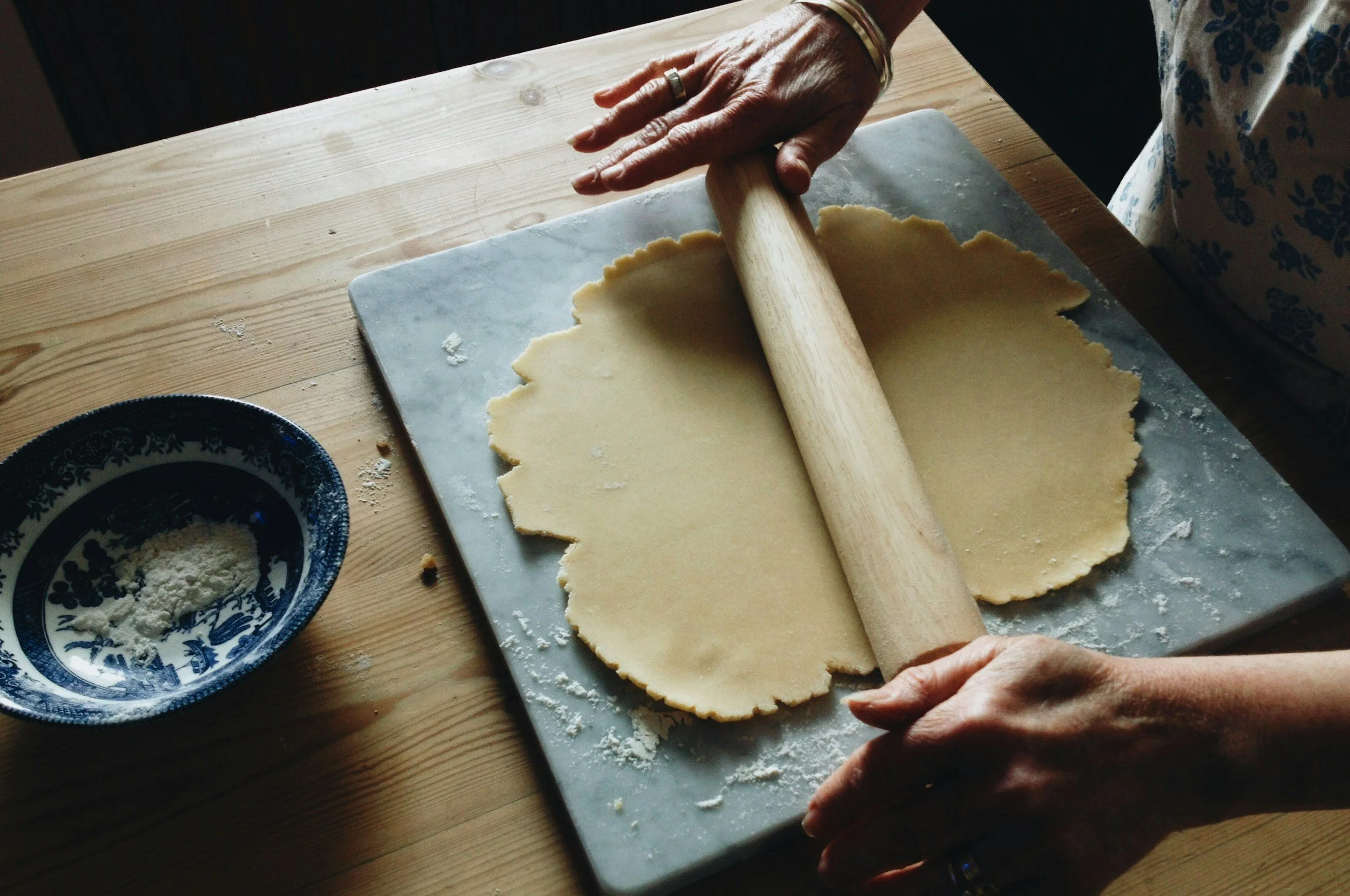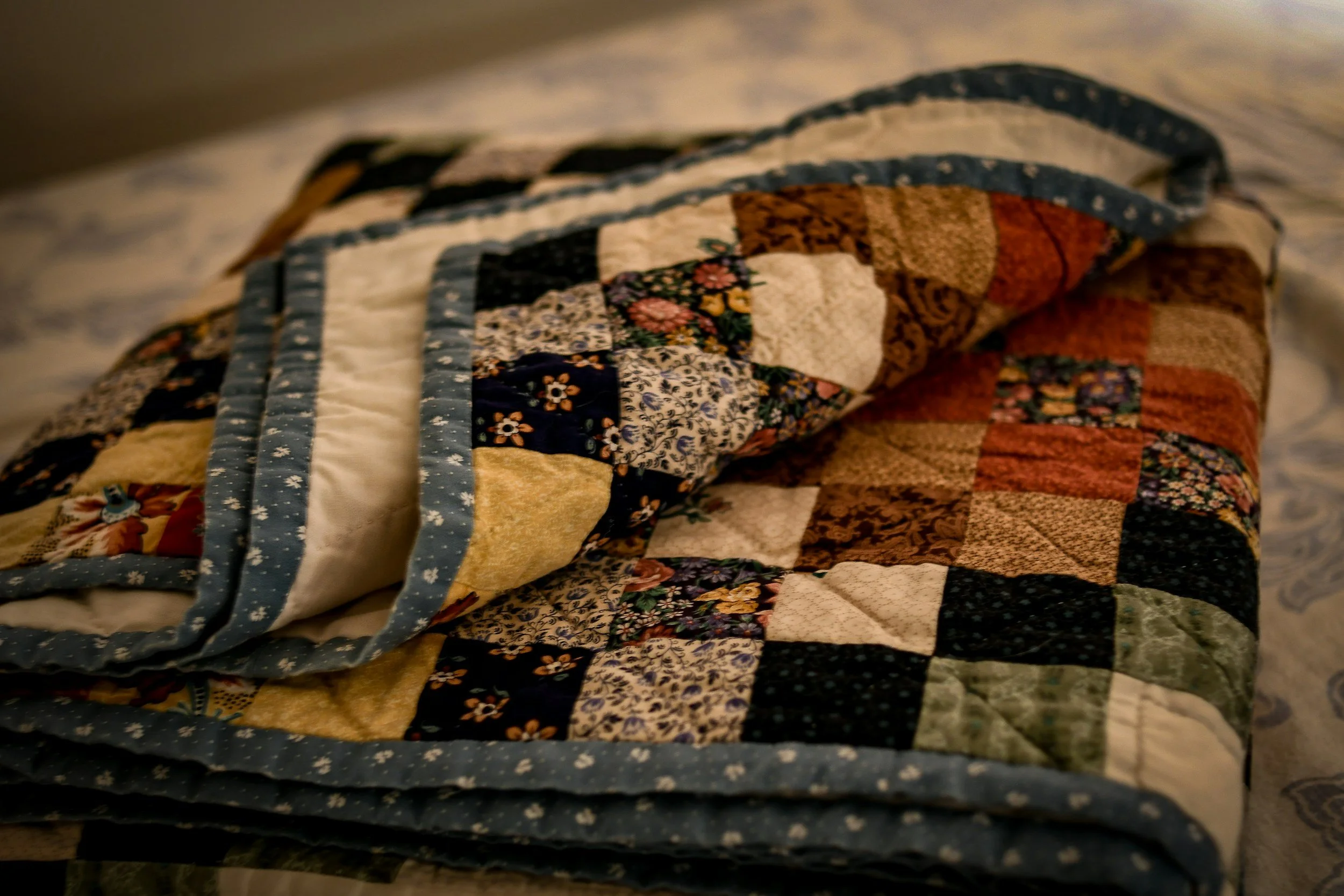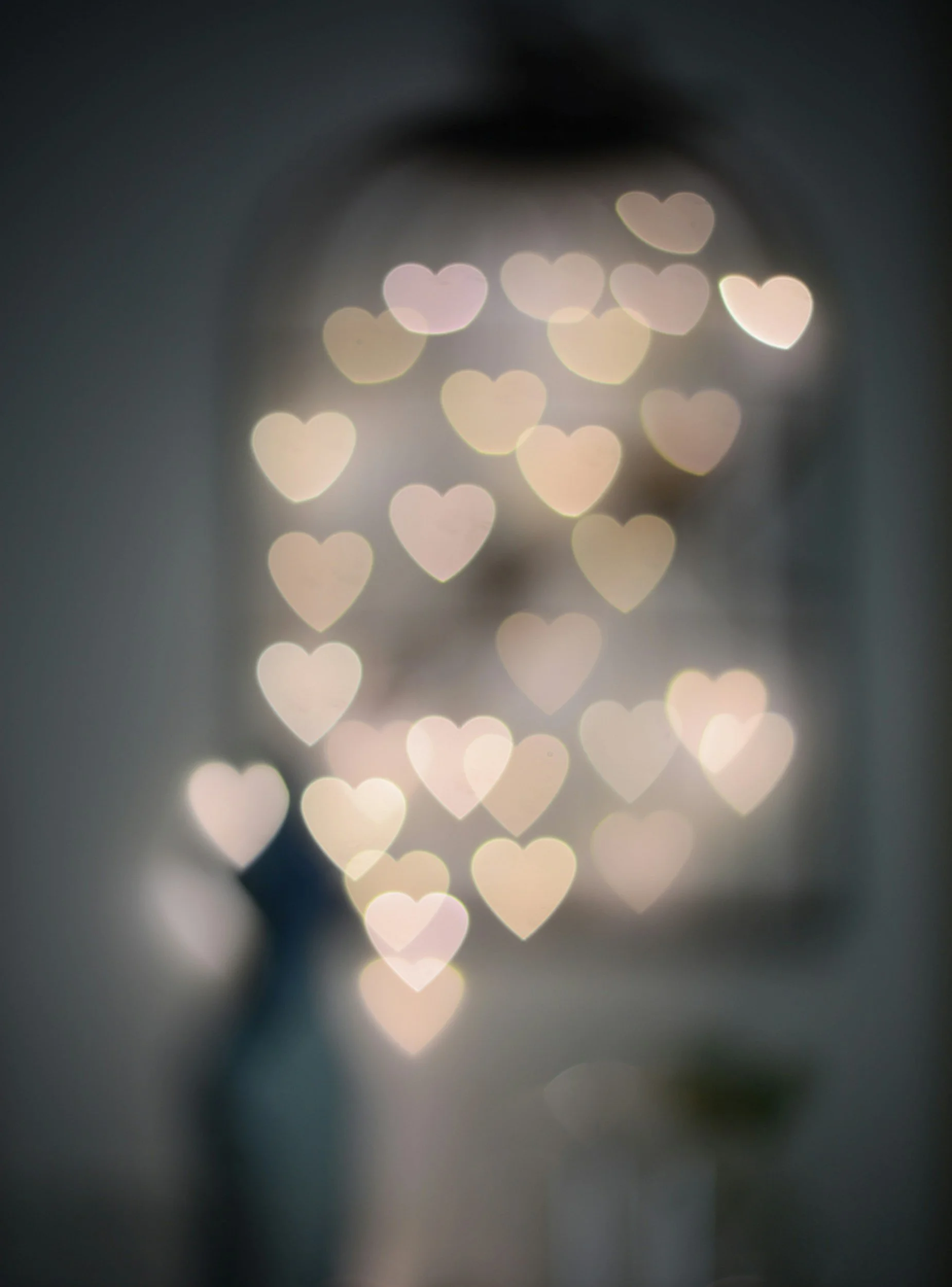Split
I met Dennis when he was in high school, I was in college, and we were both teaching English at a religious summer camp in Croatia. He came with a group from Oklahoma, including the team leadership. I signed up with a friend from college. We had a few days of training in Chicago before flying. The all-White male leadership set the tone for us, as we sat in a stuffy hotel meeting room, on the third floor, with closed windows on a windy day. There they asked us to write what we thought our lives would have been like if we had not found Christianity. Was it a trick question? Would they make us share aloud? What if my life looked basically the same?
The church had always been part of my life. I had good memories of sitting beside my parents and grandparents, swinging my feet and tapping my patent leather toes together, and drawing pictures on offering envelopes. My grandmother might give me a half stick of gum. When that was disposed of in a tissue, I might fall asleep on her lap. Somewhere along the way, it began to change. My grandparents passed away, pastors changed, and guilt became the gold coin of the patriarchy’s realm. I had blithely signed on for Croatia. I wasn’t sure what to write. I had the feeling that I was supposed to concoct some tale of dissipations and licentious acts. That even if I hadn’t done it, I would have, and that was as bad, and I must feel guilt and be properly shamed and grateful for it.
At this same training, the leadership also made a point of saying that we were not there to find romantic relationships. If we were dating, we weren’t for the trip. This was not the focus and would not be tolerated. I wasn’t dating anyone. I wasn’t worrying about it, until this directive lodged in my mind. Ironically, one of the leaders and one of the long-term volunteers living in Split, Croatia, met on that trip and were later engaged. I knew, as non-leadership, and a girl, I must be careful not to give the appearance of favoring any boy. I didn’t mean to become friends with Dennis. I didn’t seek him out. We were both more laid-back and thoughtful, and we fell in easily together among the many extroverts. It seemed to be one of those natural sympathies, a rare thing, an easy and true friendship.
At the campground, meals were served in a cross between a restaurant and a cafeteria. A place of yellows, beiges, and the light that dances near water. The tables seated four. We would drift in, sit, and wait to be served. Campers and counselors, Americans and Croatians, mingled. One day, at lunch, Dennis and I happened to arrive at the same time. We sat down together, facing each other. I assumed someone would join us. With every minute that passed, and no else coming to our table, I began to worry. I kept thinking, I’m going to get into trouble. They will think we did this on purpose. They will think I did this on purpose. I didn’t, of course, but it looks bad. It wasn’t bad, but if it looked it, to someone else, that was the same thing.
Another day, a group of several counselors, all teen- and college-aged Americans, were chatting and enjoying the local pizza, which included an egg cooked on top. It was always a welcome treat. There were umbrellas to give us shade. Water lapped at the dock a few steps away. We were, in that moment, in no hurry, and in a state of sleepy afternoon drifting. The conversation turned to dating. Dennis asked, “Can we change the topic?” I wondered, then, if he had come out of a breakup, but I wonder, now, if he had the paranoia too. The sense that it wasn’t even something to be spoken of, the feeling that someone might be listening, that someone might get the wrong idea. I’ll never know.
On another afternoon, during our free time, I walked along the main pathway though the campground. I don’t recall where I was going. Perhaps I was only walking. Dennis and another American, Chris, were sitting at a table in a cabin with the door open for a little breeze. I stopped in to say hi. I meant to be on my way, but a water balloon fight broke out. They encouraged me to stay until it died down. The three of us chatted, laughed, and watched the balloons burst. We listened to the happy screams. It was fun and innocent, but I still worried.
Would they send me home? It had become this ridiculous fear—not that I would do something wrong, but that I would appear to do something wrong, and the leaders would send me home, early and in disgrace. Looking back, I can see how impractical this would have been. We were on an island. It would have meant a long ferry ride, transportation to Split, then to Zagreb, changed tickets, and more. At the time, however, it was a real fear—always there.
They had even told us not to call home. They said they would communicate with our families and tell them we were well, but we needed to be focused. This was before ubiquitous cell phones, but there was a pay phone along a wall near the dock. It was around the corner from the entrance to the campground. Each day I walked by and thought, “I could.” They would never know, but I would feel so guilty. I wanted desperately to call home, to hear my mother’s voice, but I would feel guilty.
Yet, I was not miserable. I made friends, I laughed, I taught English lessons each day to a group of bright and kind Croatian teenagers. I had a class of my own, of nine advanced students, bilingual, and I enjoyed teaching them, and learning from them, immensely. It was a beautiful setting. If only it had not been tinged by something—an almost constant watching—the fear that I do would do something that looked wrong.
One day, after the camp, and back in Split, we, the Americans, took a side trip to the ruins at Salona near Solin. It was a place of religious persecution, long ago. We took a group photo. We were given a little time to walk around. Dennis and I climbed over some rocks and ruins. He gave me his hand, to help me up or down. It was practical, kind, and quiet. For once, I didn’t care if they saw and thought the wrong thing. We were all headed home anyway. I enjoyed those ruins. I allowed myself to be there. I allowed myself to take the hand held out to me.
During the flight home, the senior-most trip leader moved around from seat to seat, to have a conversation with each member of the trip—a debriefing, they called it. Among other things, he told me that a team was only as strong as its weakest link, and he saw me as the weakest link. This was not for any lapse of behavior. This was for my, sometimes, lack of energy and enthusiasm. I did everything I was asked, and more, but I had struggled with having energy. I was often tired. I was later diagnosed with pernicious anemia, and I began B-12 injections. I didn’t know that then. I don’t know that it would have signified. The leader left the seat beside me. My college friend returned to her seat beside me. I cried. She tried to comfort me. I had tried so hard to do everything right, and it wasn’t enough.
I’ve often thought of this strange trip. It was beautiful in moments, painful in others. It is infuriating, now. I think of Dennis. He was kind and unassuming. I could have tried to contact him after the trip. I thought of it, but I never did. Gossip was rife. I might be careful, and still it would be known. I feared that the leaders would find out, and that they would assume I was the Jezebel that they wanted me to be. It was all too risky. They would see it how they wanted to see it. There was no way to please them. There was no way to acquit myself. I am sorry that I was so quelled by what I now call White American Folk Religion and patriarchy that I didn’t challenge it, but I have learned some things.
I try to hold the good of those years and let go of the bad. It is a process, always growing. I wonder what happened to Dennis, the one who didn’t fit into the system, either, who held my hand, as a friend, and walked away. I wonder if he ever thought of me and felt the same. I hope, wherever he is, that he has found the strength to hold the good and to recognize the bad. Those travels gave me a love of travel and people, but I also have chosen to acknowledge my part in a type of religious fundamentalism, a colonizer mindset, and I see the patriarchy that hurts us all. My connection with Dennis seems to be something outside of that—something kind and innocent, which I would not pursue for fear of being found guilty.
-Olivia Lee
Olivia Lee is a poet, novelist, playwright, and English professor. She has published two novels. Her poetry has been published by Writing for Peace-DoveTales, Sonnets for Shakespeare, Haunted Waters Press, Wild Roof Journal, Underwood Press, and the Closed Eye Open, among others. Her play, In Emma’s Rendell Attic, had a pre-pandemic stage reading. She is committed to social justice work and supporting Fair Trade companies. She enjoys traveling, books, art, listening to music, walking in the woods, and spending time with her sister, Suzie, and their two dogs, George MacDonald and Keeper. Finder her on Instagram @ladyolivialee





















